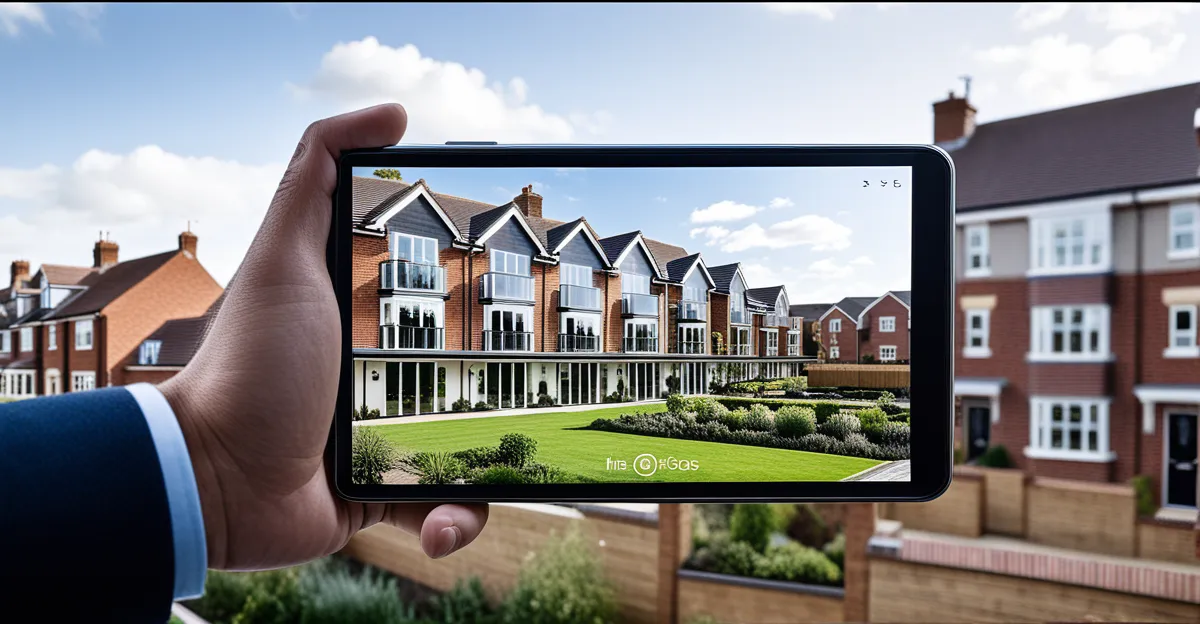The Future of UK Real Estate: How Will Emerging Technologies Reshape the Industry?
The UK real estate industry is on the cusp of a significant transformation, driven by the advent of emerging technologies. From proptech innovations to the integration of artificial intelligence and big data, the future of real estate is set to be more efficient, data-driven, and customer-centric than ever before. Here’s a deep dive into how these technologies will reshape the industry.
The Rise of Proptech
Proptech, short for property technology, is revolutionizing the real estate industry in multiple ways. This sector encompasses a wide range of technologies, including software, hardware, and business models that are transforming the way we buy, sell, manage, and interact with properties.
This might interest you : How Can Property Investments Evolve with Emerging UK Banking Regulations?
Key Proptech Trends
- Virtual Tours and Augmented Reality: Virtual tours are becoming increasingly popular, allowing potential buyers to explore properties remotely. This technology not only enhances the user experience but also saves time and resources for both buyers and sellers.
- Example: Companies like Matterport are providing 3D virtual tours that give buyers a detailed and immersive view of properties.
- Smart Home Technologies: Smart home devices are making properties more attractive and efficient. These technologies include smart thermostats, security systems, and energy management systems.
- Example: Smart thermostats like those from Nest can learn a home’s temperature preferences and adjust energy consumption accordingly, enhancing energy efficiency.
- Blockchain and Tokenization: Blockchain technology is being explored for its potential to streamline property transactions, improve transparency, and reduce costs.
- Example: Platforms like Propy are using blockchain to facilitate secure and efficient property transactions.
The Impact of Artificial Intelligence and Machine Learning
Artificial intelligence (AI) and machine learning (ML) are transforming various aspects of the real estate industry, from property management to market analysis.
AI in Property Management
- AI can automate routine tasks such as rent collection, maintenance requests, and tenant communication, making property management more efficient.
- Example: AI-powered chatbots can handle tenant inquiries 24/7, reducing the workload for property managers.
- Predictive Maintenance: AI can analyze data from sensors and other sources to predict when maintenance is needed, preventing costly repairs and improving property conditions.
- Example: Companies like BuildingIQ use AI to predict energy consumption and optimize building operations.
AI in Market Analysis
- AI can analyze vast amounts of data to provide insights into market trends, helping investors make informed decisions.
- Example: Real estate analytics firms like HouseCanary use AI to analyze market data and predict future trends.
- Personalized Recommendations: AI can help match buyers with properties based on their preferences and behavior, enhancing the buying experience.
- Example: Real estate platforms like Zillow use AI to recommend properties to users based on their search history and preferences.
The Role of Big Data and Data Analytics
Big data and data analytics are crucial in the real estate industry, enabling better decision making and more efficient operations.
In the same genre : How can UK real estate finance mitigate risks during economic uncertainties?
Data-Driven Decision Making
- Market Trends Analysis: Big data can be used to analyze market trends, helping investors and developers understand where to invest and when.
- Example: Companies like CoreLogic provide detailed market reports based on large datasets, helping stakeholders make informed decisions.
- Property Valuation: Data analytics can help in accurate property valuation by considering various factors such as location, amenities, and market conditions.
- Example: Automated valuation models (AVMs) use big data to provide quick and accurate property valuations.
Efficiency in Operations
- Energy Consumption Optimization: Data analytics can help in optimizing energy consumption in commercial and residential properties.
- Example: Energy management systems like those from Siemens use data analytics to optimize energy consumption and reduce waste.
- Customer Insights: Big data can provide valuable insights into customer behavior, helping property managers and marketers tailor their services and marketing strategies.
- Example: Property management software like Yardi uses data analytics to provide insights into tenant behavior and preferences.
Virtual and Augmented Reality in Real Estate
Virtual and augmented reality (VR/AR) are changing the way properties are marketed and sold.
Virtual Tours
- Virtual tours allow potential buyers to explore properties remotely, which is especially useful for international buyers or those with busy schedules.
- Example: Companies like Virtual Walkthrough offer 360-degree virtual tours that simulate the real-life experience of walking through a property.
- Interactive Experiences: AR can enhance the viewing experience by allowing buyers to see how furniture and decor would look in a space.
- Example: IKEA’s AR app lets users see how furniture would look in their home before making a purchase.
Smart Buildings and Energy Efficiency
Smart buildings are becoming increasingly popular, driven by the need for energy efficiency and sustainability.
Smart Building Technologies
- IoT Sensors: Internet of Things (IoT) sensors can monitor and control various aspects of a building, such as temperature, lighting, and security.
- Example: Smart building platforms like Honeywell’s Enterprise Buildings Integrator (EBI) use IoT sensors to optimize building operations.
- Energy Management Systems: These systems can analyze data in real-time to optimize energy consumption and reduce waste.
- Example: Companies like Schneider Electric offer energy management solutions that use data analytics to optimize energy use.
Practical Insights and Actionable Advice
For those looking to navigate this technological landscape, here are some practical insights and actionable advice:
For Property Managers
- Invest in Proptech: Consider investing in proptech solutions that can automate routine tasks and enhance the tenant experience.
- Example: Implement AI-powered chatbots to handle tenant inquiries and automate rent collection.
- Use Data Analytics: Utilize data analytics to gain insights into tenant behavior and preferences, which can help in tailoring services and improving retention rates.
For Investors
- Stay Informed About Market Trends: Use big data and AI to stay informed about market trends and make data-driven investment decisions.
- Example: Subscribe to real estate analytics reports and use AI-powered tools to predict future market trends.
- Look for Smart Buildings: Invest in properties that incorporate smart building technologies, as these can offer higher returns due to their energy efficiency and appeal to tenants.
For Buyers
- Use Virtual Tours: Take advantage of virtual tours to explore properties remotely, saving time and effort.
- Example: Use platforms like Zillow or Redfin to explore properties virtually before scheduling physical visits.
- Check for Smart Home Features: Look for properties with smart home features, as these can enhance the living experience and potentially increase the property’s value.
Table: Comparison of Key Technologies in Real Estate
| Technology | Description | Benefits |
|---|---|---|
| Virtual Tours | 360-degree virtual tours of properties | Saves time, enhances user experience, useful for remote buyers |
| AI in Property Management | Automates routine tasks, predictive maintenance | Increases efficiency, reduces costs, improves tenant experience |
| Big Data Analytics | Analyzes market trends, property valuations | Informed decision making, accurate valuations |
| Smart Home Technologies | Smart thermostats, security systems | Energy efficiency, enhanced living experience |
| Blockchain | Secure and efficient property transactions | Transparency, reduced costs, faster transactions |
| IoT Sensors | Monitors and controls building operations | Optimizes energy consumption, enhances security |
| AR in Real Estate | Interactive experiences for buyers | Enhances viewing experience, helps in visualizing decor and furniture |
Quotes from Industry Experts
- “The integration of AI and machine learning into real estate is a game-changer. It allows us to automate routine tasks, predict maintenance needs, and provide personalized recommendations to buyers,” says Sarah Jones, CEO of a leading proptech firm.
- “Big data and data analytics are crucial for making informed decisions in the real estate market. They help us understand market trends, optimize operations, and enhance the overall efficiency of our properties,” notes John Smith, a real estate investor.
- “Smart buildings are the future of real estate. They offer energy efficiency, enhanced security, and a better living experience for tenants. It’s a win-win for both investors and tenants,” says Michael Brown, a property developer.
The future of the UK real estate industry is undoubtedly tied to the adoption and integration of emerging technologies. From proptech innovations to the use of AI, big data, and smart building technologies, these advancements will make the industry more efficient, data-driven, and customer-centric. As the industry continues to evolve, it’s crucial for stakeholders to stay informed and adapt to these new trends to remain competitive and leverage the full potential of these technologies. Whether you’re a property manager, investor, or buyer, understanding and embracing these technologies will be key to navigating the future of real estate successfully.





